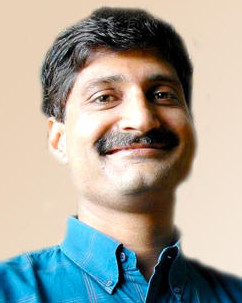
What your doctor means when he says ‘I don’t know’
Doctors are medical experts and spend years learning medicine. They are meant to have mastered their profession, which is why many patients consider doctors to be omniscient. Therefore, when the doctor’s answer to their questions is– I do not know, they are often taken aback. Many are not sure what to do, and some of them jump to the conclusion that the doctor can’t be very competent or well-informed, if he cannot even answer a patient’s simple questions. They promptly start looking for another doctor, who can give them the answers they need. Actually, it’s only a very confident doctor, who has high self-esteem and is sure of his expertise, who will give this kind of answer! When a doctor uses that phrase it can mean one of the four following things:
1. I don’t know but I am going to find out
This is a perfectly acceptable answer, because every doctor cannot possibly know everything about every technical detail, given the explosion of the medical knowledge base. With so many different specialties, a good family physician will often say – I will refer you to a specialist, who will be able to provide an expert opinion.
2. I don’t know, let’s find out together
This is a good answer too. This is a doctor who respects his patient; is willing to acknowledge lacunae in his expertise; and is willing to work with the patient to find the answers. This doctor is actually prescribing Information Therapy, so that they can find out what the possible treatment options are, and select the best one.
3. I do not know, because medical science does not know
This is a good answer, which only a true expert can give. After all, medical science has its own limitations, and we don’t have answers to all questions. This doctor is also prescribing Information Therapy and can share medical journal articles with the patient, who can then understand what the present boundaries of our medical ignorance are. They can formulate a plan of action both are comfortable with, keeping this uncertainty in mind.
4. I do not know, but am going to bluff that I do
This is a dangerous doctor, because even though he knows he does not know ( or, even worse, thinks he does, when what he knows is actually wrong, incorrect and outdated!), he will not tell the patient the truth, and will pretend to be an expert. He will cloak his ignorance with medical jargon, in order to fool the patient.
This is one of the reasons so many IVF specialists still order completely useless and unproven tests such as NK cell testing and sperm DNA fragmentation; or prescribe intravenous immunoglobulins, to treat patients with repeated IVF implantation failure. Rather than treat patients as mature adults, and tell them the truth by explaining what the limitations of medical knowledge are , they prefer taking a short cut and terminating the consultation by advising tests and treatments which are completely useless. This is because it can be very time-consuming to explain to a patient that medicine is still full of grey zones. They prefer to order tests or treatments to keep the patient happy, and they justify this kind of behaviour with lots of flimsy reasons.
Some believe that it’s not a good idea to confuse the poor patient. After all, he’s not smart enough to understand all these technical details, so why burden him with all these inconsequential minutiae? The other justification is that if I tell the patient the truth that we do not know, he will lose confidence in me, and will find another doctor who will then prescribe these tests anyway , so why don’t I just do them myself ?
These doctors don’t respect the patient’s intelligence, and treat them like ignorant children, who need to be pacified by doing tests and giving injections. Patients need to remember that when your doctor says I do not know, they should ask him what exactly he means by that statement. If he has the courage to be honest and truthful, you should respect him and your trust in him should increase. You are dealing with a doctor who understands the limitations of modern medicine – and respects you enough to be willing to share these with you.
The author Dr Aniruddha Malpani is an IVF specialist who is also very passionate about improving patient knowledge and patient-doctor relationships. He is a pioneer in the field of information therapy – the right information at the right time for the right person – and blogs at http://blog.drmalpani.
(Disclaimer: The views and opinions expressed in this article are those of the author and do not necessarily reflect the views of Daily Rounds)
Original Post: The Health Site
Image Credits: tannerfriedeman blog
